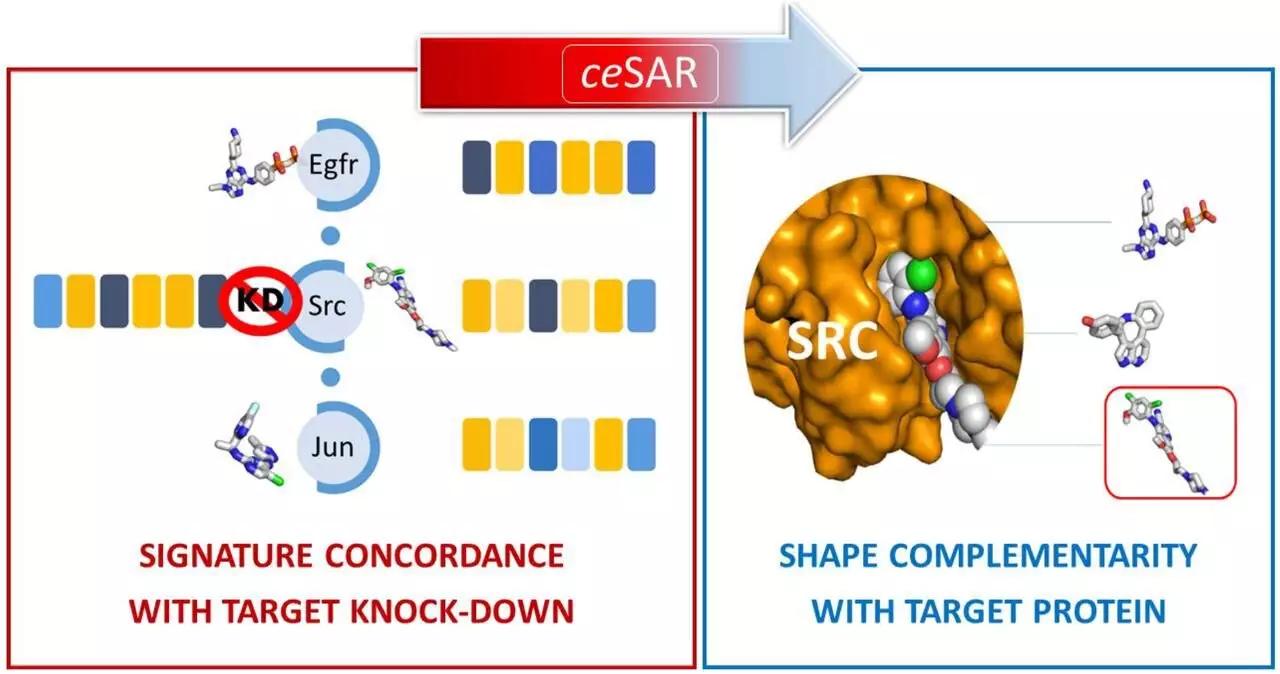In a groundbreaking study conducted by researchers from the University of Cincinnati College of Medicine and Cincinnati Children’s Hospital, a new method for increasing speed and success rates in drug discovery has been unveiled. Published in the journal Science Advances, this research presents a renewed hope for the pharmaceutical industry by significantly reducing the timeline for developing new drugs.
The key innovation in this study lies in the combination of two distinct approaches for screening potential new drugs. By leveraging a database from the Library of Integrated Network-based Cellular Signatures (LINCS), researchers were able to simultaneously screen tens of thousands of small molecules with therapeutic potential. This initial screening process was then complemented by targeted docking simulations, which model the interaction between small molecules and their protein targets to identify compounds of interest.
One of the most significant outcomes of this new screening methodology is the drastic reduction in time required for drug discovery. What used to take months can now be accomplished in a matter of minutes, with initial screening procedures condensed into a single afternoon. This accelerated pace not only streamlines the drug research process but also holds the potential to revolutionize treatment options for various diseases without known cures, including cancer.
Moreover, this innovative approach to drug discovery is poised to advance precision medicine, a tailored healthcare approach that factors in individual genetic differences, environments, and lifestyles. By identifying potentially effective compounds more efficiently and accurately, researchers are paving the way for personalized treatment options that cater to the unique needs of each patient.
In addition to its implications for individualized medicine, the expedited drug discovery process holds promise for addressing global health crises. The ability to quickly respond to public health emergencies, such as the ongoing COVID-19 pandemic, could be a game-changer in mitigating the impact of infectious diseases and other health threats on a societal level.
Overall, the findings of this research study signal a paradigm shift in the field of drug discovery. By combining cutting-edge screening techniques with advanced computational modeling, researchers have unlocked a new frontier in pharmaceutical research that promises to improve the lives of countless individuals worldwide. The future of drug discovery is indeed bright, with this innovative approach leading the way towards faster, more effective treatments for a wide range of diseases.


Leave a Reply